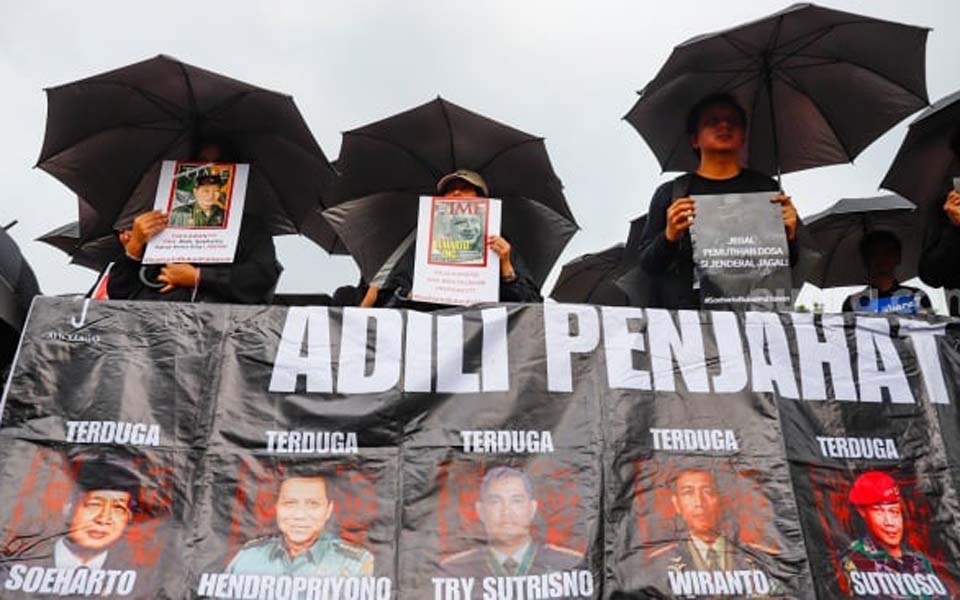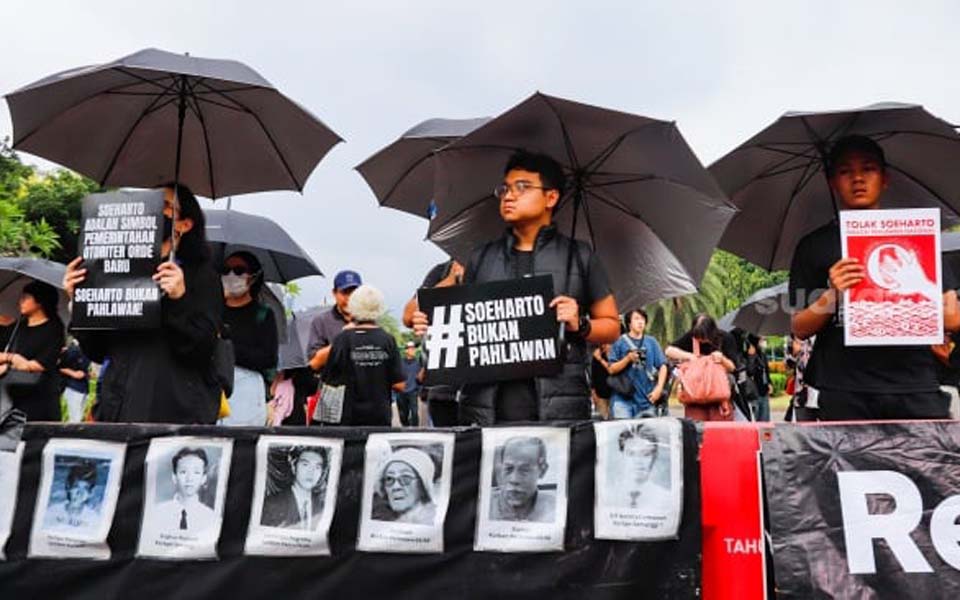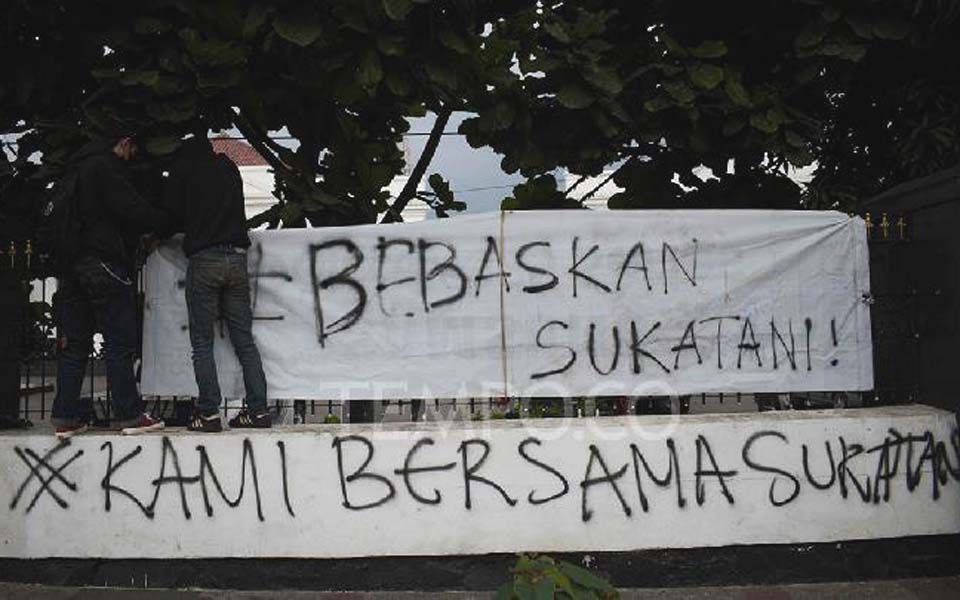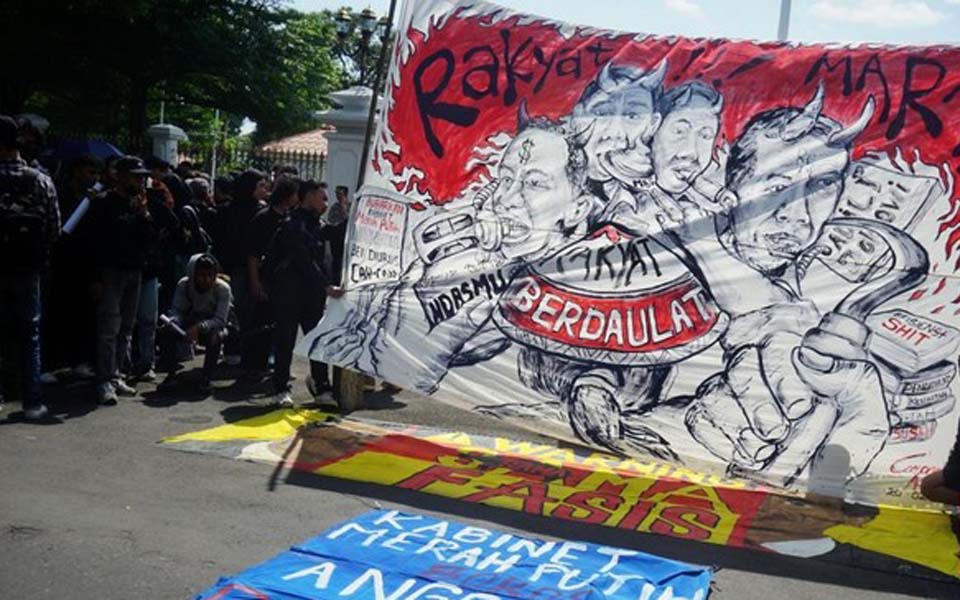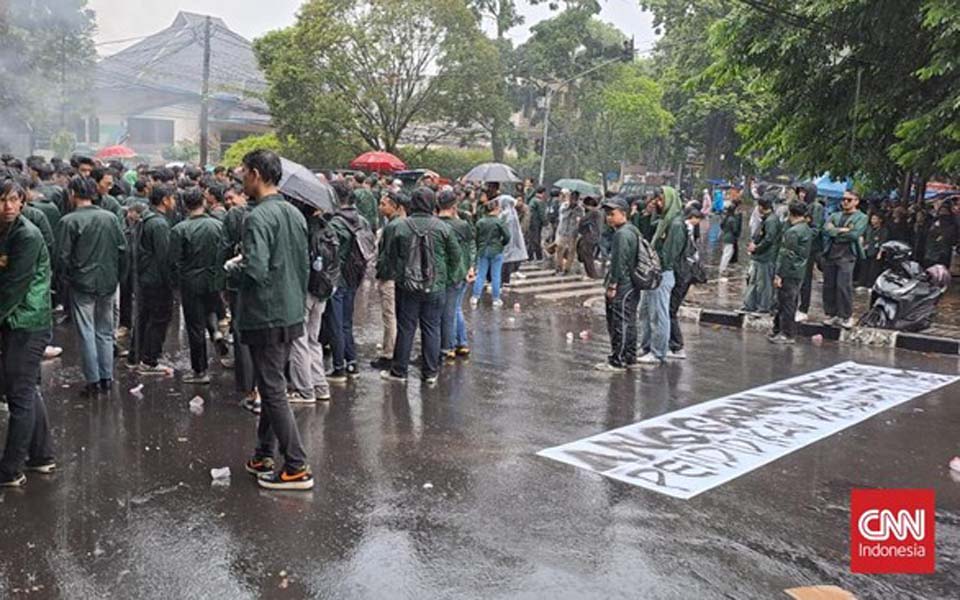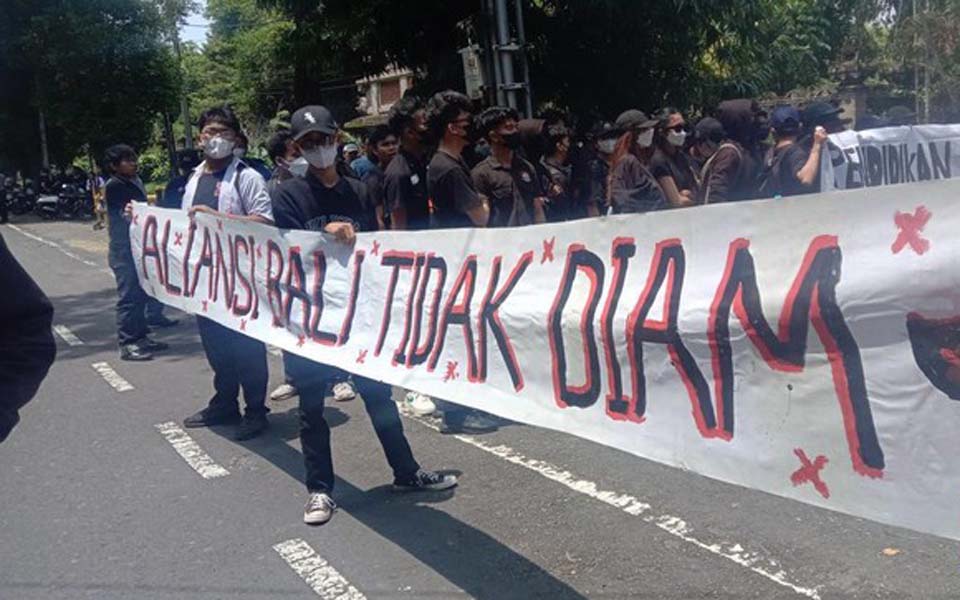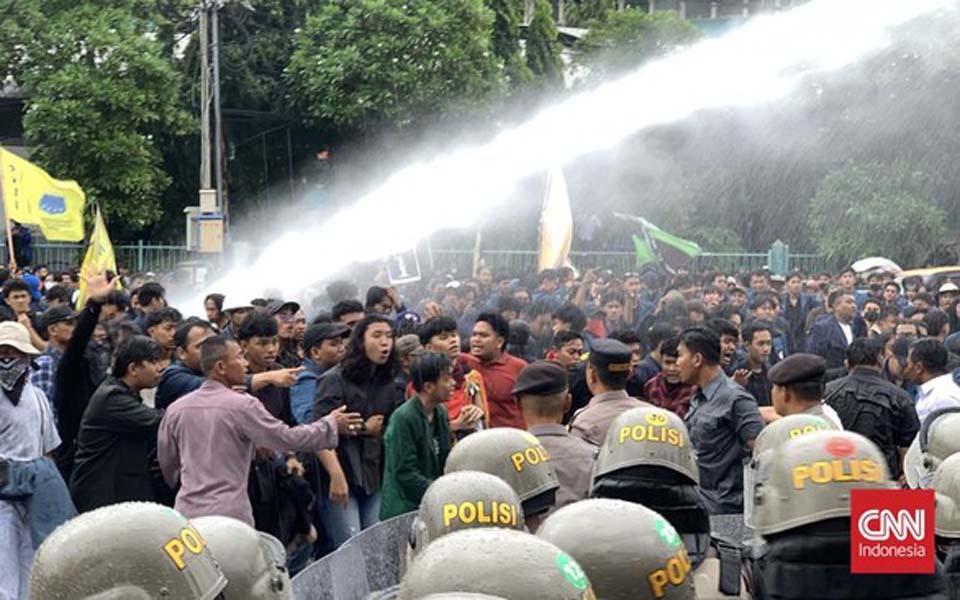Jakarta – The Indonesian Legal Aid Foundation (YLBHI) has released a report which cites educational institutions as one of the main actors in the violation of freedom of expression. Campuses, for example, have prevented students from taking part in protest actions.
The YLBHI based its report on monitoring during the massive wave of #ReformasiDikorupsi (Reform Corrupted) actions by students across Indonesia in late September. The modus was varied from appeals not to join protests, threats of expulsion from campus or schools to holding unscheduled exams on the date of protest actions.
Educational institutions were in second place after the police. The YLBHI recorded 67 cases of police violating freedom of expression followed by educational institutions, with five cases involving universities and four other cases involving schools.
YLBHI Chairperson Asfinawati said that this shows that there is a crisis in the world of education.
“It’s not surprising therefore that there’s a lot of intolerance, conservatism, because educational institutions don’t allow people to think freely. As a consequence they’re easily influenced by conservative ideas, including conservative religious ideas”, explained Asfinawati when contacted by CNN Indonesia on October 29.
Asfinawati revealed that these conditions are similar to what they found when reformasi – the political reform process that started in 1998 – first began. The difference being is that the curbing of protest actions then was not structural.
“These kind of structural [restrictions] remind us of the [policies of] the Normalisation of Campus Life and the Student Coordinating Councils (NKK/BKK) during the New Order era”, said Asfinawati.
The policies mentioned by Asfinawati were applied during the administration of former president Suharto. Launched by then Education Minister Daoed Joesoef, the policies were aimed at getting university students to focus on their studies, not get involved in politics.
Asfinawati also touched on the move by President Joko “Jokowi” Widodo who ordered the previous Minister for Research, Technology and Higher Education (Menristekdikti), Mohammad Nasir, to contain the demonstrations. The order was interpreted by Nasir to mean asking campus authorities to prevent students from taking to the streets.
“This is also a sign of how critical it is because there was an order from the Menristekdikti”, said Asfinawati.
Speaking separately, Sanata Dharma Yogyakarta University rector Johanes Eka Priyatma avoided the issue and instead responding by saying that there is a difference between how people understand freedom of expression.
According to Priyatma, freedom of expression must be accompanied by methodology and scientific data while demonstrations conflict with the values of tertiary education.
Demonstrations, according to Priyatma, only bury the truth. He suggests that it would be better if students or academia convey their aspirations through discussion, writing articles and debates.
“Moreover when there’s demonstration, what becomes a problem is not the truth, but who’s voice is loudest, who has the most supporters and opportunities, who has the most money. And when that happens, the truth is sidelined”, he said.
In mid October the AMAR Law Firm and Public Interest Law Office also received 72 complaints throughout September, 37 of which involved tertiary education institutions threatening to sanction students who took part in demonstrations.
The YLBHI report, which also covered other incidents between January and October this year, found that some 6,128 people had their freedom of expression violated, 43 percent of which were students.
In the report the YLBHI concluded that there has been a shift in how the government, particularly law enforcement officials see demonstrations.
“From being seen a right which is protected by the constitution and legislation it has become an activity which needs to be monitored and even a crime”, wrote the YLBHI in the report. (ika/ain)
[Slightly abridged translation by James Balowski. The original title of the article was “Kekang Demonstrasi, Aroma Orba di Lingkungan Pendidikan”.]






